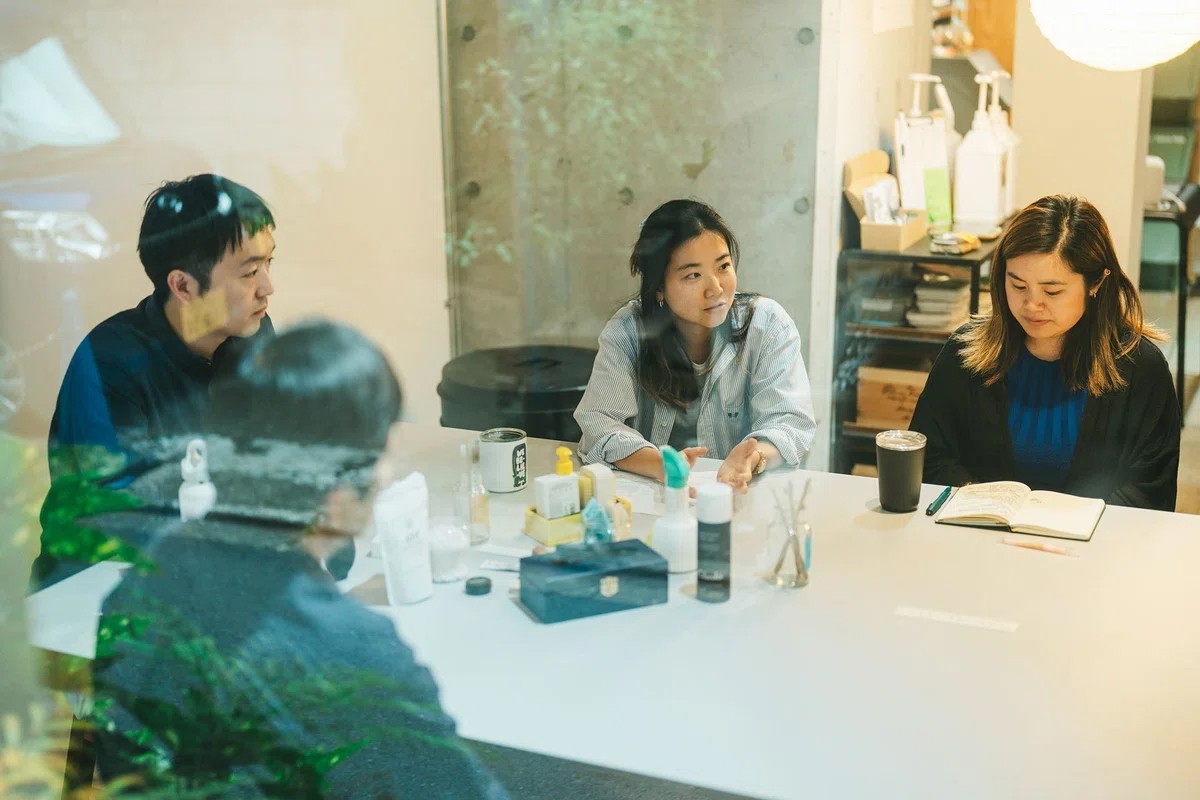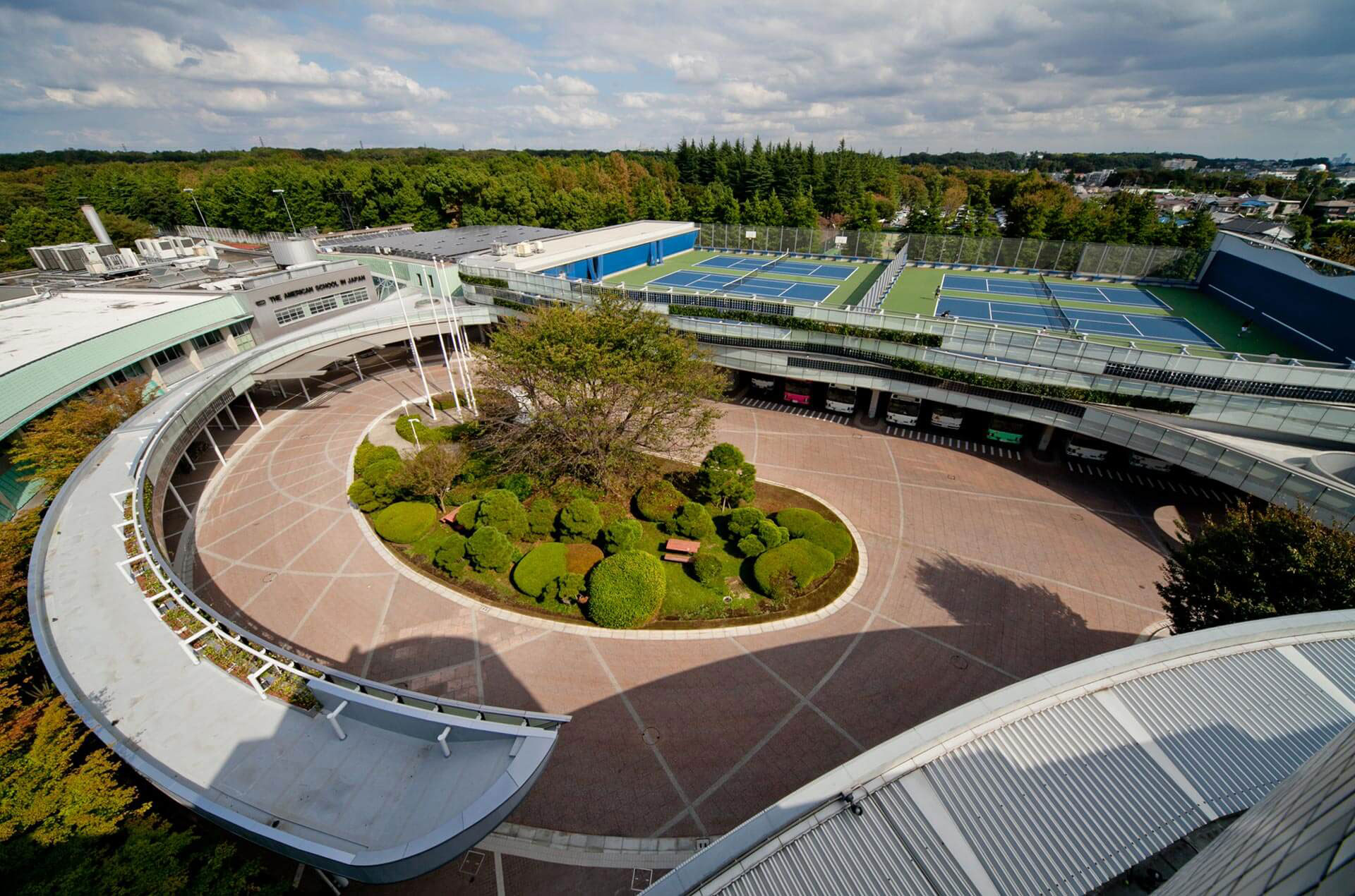Sustainability
in Japan 3
Sustainability
in Japan 3
The pathway to regenerative business
The pathway to regenerative business

Limited Print Edition
‘Sustainability in Japan 3: The pathway to regenerative business’ is a 256-page book sharing Fabric’s latest insights and thinking on Japan’s sustainability transition.
The book features 19 articles exploring themes around regenerative business and the intersection of wellbeing and work, including a foreword from guest editor and mymizu founder Robin Lewis.
The limited print edition is made sustainably by our friends at Ohkawa Printing, with zero carbon emissions and 100% renewable energy.
It’s available for ¥6050 (including tax, plus shipping).
Shipping is available worldwide.
‘Sustainability in Japan 3: The pathway to regenerative business’ is a 256-page book sharing Fabric’s latest insights and thinking on Japan’s sustainability transition.
The book features 19 articles exploring themes around regenerative business and the intersection of wellbeing and work, including a foreword from guest editor and mymizu founder Robin Lewis.
The limited print edition is made sustainably by our friends at Ohkawa Printing, with zero carbon emissions and 100% renewable energy.
It’s available for ¥6050 (including tax, plus shipping).
Shipping is available worldwide.
Digital Edition
The digital edition of 'Sustainability in Japan 3: The pathway to regenerative business' is available online for Fabric subscribers, with access to the full 256-page book as a PDF.
Sign up below and you’ll receive a download link to your email.
The digital edition of 'Sustainability in Japan 3: The pathway to regenerative business' is available online for Fabric subscribers, with access to the full 256-page book as a PDF.
Sign up below and you’ll receive a download link to your email.
Subscribe
By subscribing you agree to receive emails from Fabric, see our privacy and data policy for details.
Themes from the study
Themes from the study
The primary theme in the report is ‘regenerative business’ – building new practices, future-ready organisations, and notions of community.
Our research identified wellbeing and work as a primary barrier to sustainable change, with the need to focus on collective and individual agency if we’re going to effectively tackle social and environmental challenges.
Our insights are drawn from unique data and research conducted by our sustainability team, including a national quantitative study and interviews with business, academic, and community leaders.
The primary theme in the report is ‘regenerative business’ – building new practices, future-ready organisations, and notions of community.
Our research identified wellbeing and work as a primary barrier to sustainable change, with the need to focus on collective and individual agency if we’re going to effectively tackle social and environmental challenges.
Our insights are drawn from unique data and research conducted by our sustainability team, including a national quantitative study and interviews with business, academic, and community leaders.






Some of the themes and areas explored are:
Building motivation for sustainability initiatives within your organisation
How different generations and groups think about sustainability and SDGs
Why wellbeing is the foundation for sustainable change in our society
Approaches to purpose and human capital in Japanese organisations
Ways to create positive cycles of employee wellbeing and business growth
Shifting mindsets from sustainable to regenerative thinking
Tipping points and leverage points for social and environmental change
Perceptions of responsibility for sustainability by industry and brand
Future proofing businesses through regenerative and sustainable practices
Some of the themes and areas explored are:
Building motivation for sustainability initiatives within your organisation
How different generations and groups think about sustainability and SDGs
Why wellbeing is the foundation for sustainable change in our society
Approaches to purpose and human capital in Japanese organisations
Ways to create positive cycles of employee wellbeing and business growth
Shifting mindsets from sustainable to regenerative thinking
Tipping points and leverage points for social and environmental change
Perceptions of responsibility for sustainability by industry and brand
Future proofing businesses through regenerative and sustainable practices
6260
6260
Participants in the research study,
aged 15-69 from across Japan
13
13
Interviews with sustainability leaders
19
19
Articles exploring regenerative business and sustainable transformation in Japan
256
256
Page report available as a print and
digital edition
Page report available as a print and digital edition



Sustainability in Japan 3 Articles
Sustainability in Japan 3 Articles
Contributors
Like regenerative business itself, this report has been a collective effort.
We extend our heartfelt appreciation to the diverse group of study participants whose invaluable time and insights have contributed to its formation.
We also acknowledge the important contributions each, in their own way,
is making to the new social fabric,
and stand together as a community
of changemakers.
Like regenerative business itself, this report has been a collective effort.
We extend our heartfelt appreciation to the diverse group of study participants whose invaluable time and insights have contributed to its formation.
We also acknowledge the important contributions each, in their own way,
is making to the new social fabric,
and stand together as a community
of changemakers.
Participants
Akiko Kubota
Azure Marketing Manager / Sustainability Lead, Microsoft Japan
Corinne Johnson
Corporate Advisor and Coach
Eriko Suzuki
Founder / CEO, Kind Capital
Jin Song Montesano
Chief People Officer, LIXIL
Ken Shibusawa
CEO, Shibusawa and Company
Kumiko Hori
Integrated Social Sustainability Design Co. Ltd. Former Head of Community Impact, Asia Pacific, UBS AG
Madoka Ikeda
Head of D&I, NTT
Misaki Tanaka
CEO, SOLIT, inc.
Philippa Cross
Founder, Marshall Sustainability
Satoko Tatsumi
Chief Researcher, Recruit Works Institute
Shigehiro Kato
Business Producer, Recruit
Tomoe Ueyama
Co-Founder/CEO, Project MINT
Yukiko Saito
Chief People Officer, McDonald’s Japan
Research
Ai Yamanaka
Hasumi Nemani
Nick Ashley
Rebekah Cheng
Reiko Suzuki
Editorial
Nico Leonard
Robin Lewis
Writing & Translation
David Willoughby
James Hollow
Jiro Tatsuno
Kohei Kanayasu
Mina Oba
Publication Design
Dingo Francisco
Kumiko Michishita
Program Management
& Photography
Eileen Kao
Looking for previous reports?
Looking for previous reports?






Fabric is collaborating with Andersen Consulting
Nakame Gallery Street J4
2-45-12 Kami-meguro
Meguro-ku Tokyo 153-0051
Japan
Fabric is collaborating with Andersen Consulting
Nakame Gallery Street J4
2-45-12 Kami-meguro
Meguro-ku Tokyo 153-0051
Japan
Copyright Ⓒ Fabric 2026
Fabric is collaborating with
Andersen Consulting
Nakame Gallery Street J4
2-45-12 Kami-meguro
Meguro-ku Tokyo 153-0051
Japan























